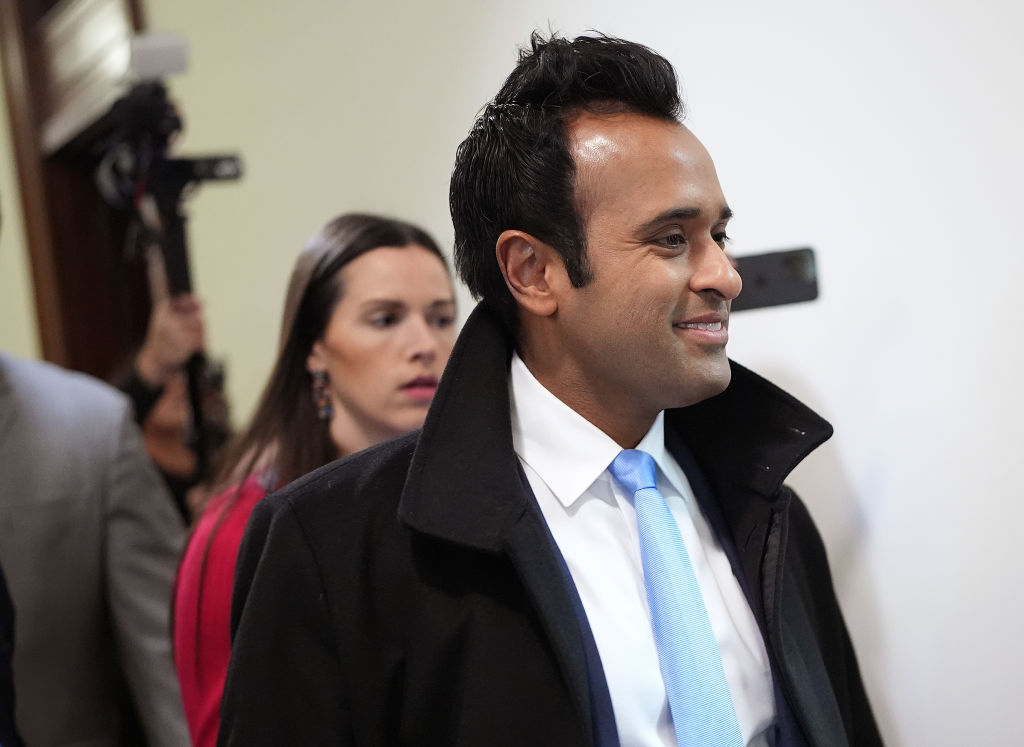Captained by entrepreneurs Elon Musk and Vivek Ramaswamy, the Trump administration’s Department of Government Efficiency (DOGE) will seek to cut hundreds of billions—and even trillions—of government spending. The ambitious goals have led some Americans to worry that funding for initiatives like veterans’ health care might get even the ax.
“BREAKING: Stunning new reporting shows that Elon Musk and Vivek Ramaswamy's DOGE plans on cutting $119 million in Veterans healthcare benefits. This is terrifying,” reads one viral post. “Incoming member of the Trump Administration, has announced plans to cut $120 billion in Veterans health care. RETWEET to let the American people know what they voted for!” says another.
The claim is misleading. For starters, DOGE is not a federal agency and will have no authority to cut funding to programs independently. Ramaswamy did suggest that Congress should not be allowed to fund government programs with expired authorizations, but he did not announce that DOGE would recommend cutting any specific programs, including health care for veterans.
Ramaswamy wrote in a November 13 post on X that the government spends billions of dollars a year funding programs with expired authorizations. “We shouldn’t let the government spend money on programs that have expired. Yet that’s exactly what happens today: half a *trillion* dollars of taxpayer funds ($516 B+) goes each year to programs which Congress has allowed to expire,” he wrote. “We can & should save hundreds of billions each year by defunding government programs that Congress no longer authorizes.”
Ramaswamy is correct: According to the Congressional Budget Office, $519.1 billion was spent on government programs with expired authorizations in fiscal year 2024. The most expensive of all these programs, the Veterans’ Health Care Eligibility Reform Act of 1996, received more than $122 billion from Congress in fiscal year 2024.
Congressional lawmaking is typically split into two categories: 1) authorizations, meaning statutes that grant the government authority to perform a specific duty, and 2) appropriations, which grant the government the ability to spend money for particular purposes. Congress uses these two statute types together, creating government programs through authorizations and funding those programs through appropriations.
Many discretionary authorizations, however, contain specific expiration dates after which Congress is barred from appropriating additional funds without first renewing the authorization. The authorization for the Veterans’ Health Care Eligibility Reform Act of 1996, for example, expired in 1998. This restriction on funding expired programs, however, is a product of congressional rules and not required by the Constitution, meaning it can be discarded by the House with unanimous consent.
“Nearly half of non-defense discretionary programs currently have expired authorizations,” Brian Riedl, an economist at the Manhattan Institute, told The Dispatch Fact Check. These programs still receive funding through the annual appropriations process, despite their expired authorizations. “Veteran’s health care was last reauthorized in 1996 and that authorization expired in 1998,” Riedl explained. “The program still receives annual appropriations, but it runs under the 1996 to 1998 program structure and rules.”
The power to create and fund government programs is granted by the Constitution exclusively to the legislative branch, meaning Congress, not DOGE, would need to act to end funding for expired authorizations. According to Riedl, this is unlikely. “Congress will not defund popular programs for what is essentially an administrative technicality, especially if the programs still serve their constituents well on the older structure.”
If you have a claim you would like to see us fact check, please send us an email at factcheck@thedispatch.com. If you would like to suggest a correction to this piece or any other Dispatch article, please email corrections@thedispatch.com.







Please note that we at The Dispatch hold ourselves, our work, and our commenters to a higher standard than other places on the internet. We welcome comments that foster genuine debate or discussion—including comments critical of us or our work—but responses that include ad hominem attacks on fellow Dispatch members or are intended to stoke fear and anger may be moderated.
With your membership, you only have the ability to comment on The Morning Dispatch articles. Consider upgrading to join the conversation everywhere.